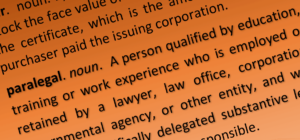From the Court of Appeals of Missouri, Eastern District, came a case of “first impression,” on 2 different issues concerning mechanic’s liens in Missouri. The case is Midwest Floor Co. v. Micelli Development Co., 304 S.W.3d 243 (Mo. Ct. App. E.D. 2009), for those who care to find and read the entire case. Various plaintiffs and defendants from the lower court decision were not parties to the case reviewed by the Court of Appeals, which was between Kelpe Contracting, who had filed a mechanic’s lien against property of some home owners (the Preckels) and their builder (Miceli). The holdings were both contractor friendly. And while neither holding may be a surprise to constructors, they are worth reviewing to remind us all that nothing should be taken for granted when it comes to lien laws. The facts of the case are that in May 2006 Kelpe Contracting was hired by Miceli, a developer, to stabilize a steep slope so that a rear entry garage could be constructed on a new home being built for sale by Miceli. The contract was set for $116,650. The work was started by Kelpe, but Kelpe could not locate stable ground and work temporarily halted to assess the situation and design. On September 21, 2006 Kelpe offered a second proposal in the amount of $45,894 related to a retaining wall to accommodate the rear entry garage. One day later, on September 22, 2006, the Preckels purchased the property and filed their deed. When Kelpe was not paid for the work done under either proposal, a lien was filed by Kelpe against the property, which then owned by the Preckels. Kelpe filed and won summary judgment, and the Preckels appealed. The basis of the Preckel’s appeal was two fold. First, they contended the lien was fatally defective because it contained “non-lienable items.” They correctly cited RSMo § 429.101, which states that a mechanic’s lien is only available for a person who “shall do or perform any work or labor upon the land.” Their argument was that Kelpe had subcontracted the work and, therefore, did not themselves perform work or labor upon the land. Amazingly, this was the first time this angle had ever been brought up to the court for interpretation. Thankfully the Court held Kelpe did in fact perform the work by furnishing labor through subcontractors and that to accept the Preckel’s interpretation of the lien law would deny Kelpe security for the labor it had furnished (through subcontractors). The Court held lien claimants may include the work performed by subcontractors in their mechanic’s liens. Whew…that’s great to know considering the hundreds, if not thousands, of liens that have been filed over the years by general contractors for work performed many times, if not most of the time, by subcontractors! Had the Court found otherwise, there would most certainly have been an immediate move in the Missouri legislature to amend the lien laws to correct what would have been the new interpretation of Missouri’s lien laws. There would have been numerous invalid liens in the pipeline, potentially leading to just as many claims of legal malpractice. So it’s easy to see why the holding of this case was just as important to construction lawyers as it was to the constructors. Thank you Court of Appeals! The second holding from the Court concerns the timing of the lien statement. The Preckels argued that there were two contracts for the work performed by Kelpe and, as a result, Kelpe was required to file two separate liens on the property instead of just the one that was filed. The Preckels argued the first work was abandoned before the second work began, so Kelpe should have filed a lien on the first work within 6 months from the last day on phase 1, and then another lien should have been filed on the retaining wall work within 6 months after the last day worked on phase 2. Again the Court of Appeals came through with a logical (and correct in the eyes of constructors everywhere) holding. First know this, if there are been two distinct, unrelated contracts, the Court may well have sided with the home owners; however, ultimately the court held that the work performed by Kelpe under both contracts was “necessary to accomplish one goal.” The Court found the work was never abandoned, just temporarily stopped to formulate plans to overcome unforeseen obstacles. The important thing from the holding is the “necessary to accomplish one goal.” That made the single lien for both contracts appropriate and enforceable in the eyes of the Court. Because both contracts were performed to “accomplish one goal,” the timing of the lien was tied to the last day worked on the second contract, and the lien was timely filed. This is but another example of how mechanic’s lien laws are like an onion…just when you think you know how to read and interpret the statutes, you have to peel back another layer and go deeper into the cases to find how the courts have interpreted those very statutes. Mechanic lien laws vary from state to state…so the very best advice and counsel I can leave you with is to always consult with a well-qualified, experienced construction lawyer that is familiar with the laws in the state where the project is located.




